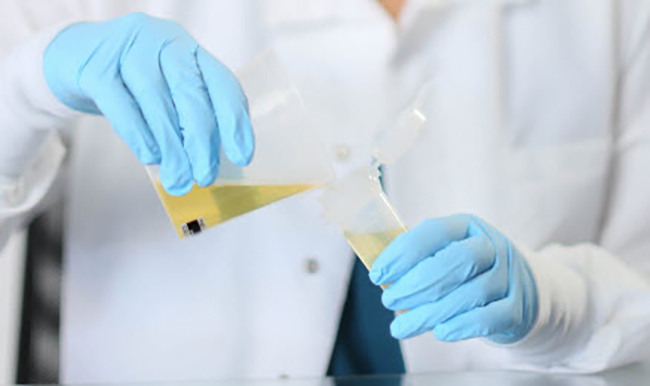
Introduction
Drug testing has become an essential part of various sectors, including employment, sports, and legal systems. Among the different methods, urine drug testing is widely used due to its non-invasive nature and reliability. But when and why might you need a urine drug test? Let’s dive into the specifics.
What is Urine Drug Testing?
Definition and Purpose
Urine drug testing involves analyzing a urine sample to detect the presence of specific drugs and their metabolites. This type of testing helps identify recent drug use and is commonly used for both screening and diagnostic purposes.
How It Works
The process starts with the collection of a urine sample, which is then sent to a laboratory for analysis. Advanced techniques like immunoassays and gas chromatography-mass spectrometry (GC-MS) are used to detect and confirm the presence of drugs.
When You Might Need Urine Drug Testing
Pre-Employment Screening
Many employers require potential hires to undergo a urine drug test to ensure they are drug-free before starting work. This is particularly common in industries where safety is a top priority, such as transportation and healthcare.
Random Workplace Testing
To maintain a drug-free workplace, some companies conduct random drug tests on their employees. This helps deter drug use and promotes a safer, more productive work environment.
Post-Accident Testing
In the event of a workplace accident, employers may require involved employees to take a urine drug test. This can help determine if drugs were a factor in the incident.
Sports and Athletic Testing
Athletes, both amateur and professional, may be subject to urine drug testing to ensure fair play and adherence to anti-doping regulations.
Legal and Forensic Testing
Urine drug tests are often used in legal settings, such as probation monitoring, custody disputes, and criminal investigations, to provide evidence of drug use.
Personal and Family Reasons
Individuals might opt for urine drug testing to monitor their own health, ensure a loved one is staying clean, or to confirm the absence of drugs in their system for personal peace of mind.
Common Drugs Tested For
Marijuana
THC, the active ingredient in marijuana, is commonly tested in urine drug tests due to its prevalence and potential impairment effects.
Cocaine
Cocaine use can be detected through its metabolite, benzoylecgonine, which remains in the urine for a few days after use.
Opiates
Drugs like heroin, morphine, and codeine fall under this category and are frequently tested due to their high potential for abuse and addiction.
Amphetamines
This category includes drugs like methamphetamine and certain prescription medications used to treat ADHD, which can be abused for their stimulant effects.
Benzodiazepines
Commonly prescribed for anxiety and sleep disorders, these drugs are also tested due to their potential for misuse.
The Urine Drug Testing Process
Sample Collection
The process begins with the collection of a urine sample, usually in a private restroom. The sample is then sealed and labeled to maintain a chain of custody.
Laboratory Analysis
At the lab, the sample undergoes initial screening using immunoassay techniques. If the result is positive, a confirmatory test, typically GC-MS, is conducted to verify the findings.
Result Interpretation
Results are usually reported as negative, positive, or inconclusive. Negative means no drugs were detected, positive indicates the presence of drugs, and inconclusive suggests a need for retesting.
Benefits of Urine Drug Testing
Promotes Safety
Regular drug testing helps ensure that individuals in safety-sensitive positions are not under the influence, reducing the risk of accidents and injuries.
Enhances Productivity
A drug-free workplace tends to be more productive, with fewer absences and better overall performance from employees.
Legal Compliance
Many industries are required by law to conduct drug testing. Complying with these regulations helps avoid legal issues and potential fines.
Personal Health Monitoring
For individuals, regular drug testing can be a valuable tool in managing health and ensuring the effectiveness of substance abuse treatment programs.
Challenges and Considerations
Privacy Concerns
Some individuals may feel that urine drug testing invades their privacy. It’s important for testing programs to balance the need for information with respect for personal rights.
Accuracy and False Positives
While generally reliable, urine drug tests can sometimes produce false positives due to cross-reactivity with certain medications or foods.
Handling Positive Results
A positive result can have significant implications for an individual. It’s crucial to handle these situations with care, ensuring the individual receives support and a fair chance to explain or retest.
Preparing for a Urine Drug Test
Understanding the Procedure
Knowing what to expect can help alleviate anxiety. Typically, the process involves providing a sample in a controlled environment.
Hydration and Diet
Drinking water and eating a balanced diet can help ensure a more accurate test result, but excessive hydration should be avoided as it can dilute the sample.
Medication Disclosure
Informing the testing facility about any prescription or over-the-counter medications you’re taking can help prevent false positives.
Interpreting Results
Negative Results
A negative result means no drugs were detected, indicating compliance or the absence of drug use.
Positive Results
A positive result indicates the presence of drugs. It’s important to confirm this result with a secondary test and consider any possible explanations, such as prescription medications.
Inconclusive Results
An inconclusive result may require retesting. This can occur due to sample issues or borderline findings.
Conclusion
Urine drug testing plays a crucial role in promoting safety, productivity, and health across various sectors. Whether it’s for employment, sports, legal reasons, or personal health monitoring, understanding when and why you might need a urine drug test can help you prepare and respond appropriately. By staying informed about the testing process, the types of drugs commonly tested for, and the interpretation of results, you can navigate the complexities of drug testing with confidence.
Real also: What are the Requirements for Drug and Alcohol Testing?



